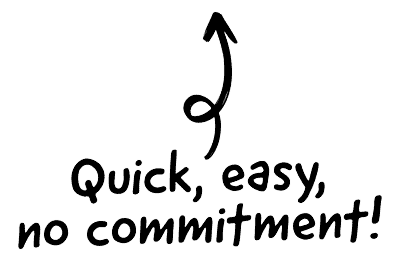It can be all too easy for startups to hit the ground running, caught up in the excitement of that lightbulb moment, without building foundations through thinking strategically and holistically around business strategy. Many startups can therefore run the danger of moving full steam ahead into a competitive market with very little in the way of USPs or differentiation from competitors to excite consumers. Although this level of naivety may pay off for some, it may be based on luck rather than judgement.

Some ideas of where to start
Traditional business models still have a place for startups, and can really help owners and the teams around them to map out answers to the most important questions before launch. These models can also help to identify barriers to entry, alleviate risks or work towards a startup gaining competitive edge from the outset. Let’s look at a few examples.
SWOT analysis – strengths, weaknesses, opportunities and threats. This is a basic model which looks at elements such as what distinct advantages does the startup offer over competitors and what are the weaknesses with the existing business model? What are the opportunities for growth and threats from competition?
 Cutting edge payroll software
Cutting edge payroll software
- Powerful and easy to use
- HMRC & RTI compliant
- Used by payroll pros
 The CRM platform to grow your business
The CRM platform to grow your business
- Great for entrepreneurs
- Powerful data analytics
- Manage sales and data
 Powerful web builder and advanced business tools
Powerful web builder and advanced business tools
- Great for startups
- Powerful web page builder
- E-commerce available
 Supercharged content planning
Supercharged content planning
- Great for marketing
- Better than lists or sheets
- Manage social media
 Create a new website in 10 minutes. Easy.
Create a new website in 10 minutes. Easy.
- Launch your website fast
- Powerful data intuitive
- No coding skills needed
PEST analysis – political, economic, social and technological factors. Are there any wider market issues which could potentially affect the launch and growth of the startup? Of course, not all of these factors will impact on the startup. For most, social and technological factors will resonate and will need to be addressed. Social may impact if looking at the likelihood of the public perception of the market, demographics and buying trends from different regions, or seasonal buyer behaviour. Technological is a consideration with greater impact if the startup is product based. Is the technology of your startup more powerful than market competition?
Ansoff’s Matrix – the model below is particularly useful for startups launching a product into the marketplace. This model can help to support a plan around understanding how to position products within the marketplace.

Image sourced from ansoffmatrix.com
Putting these models into practice with Decibel Insight
I have had first-hand involvement with how startups can become successful. Let’s look at one example from Decibel Insight, the sister company of our digital agency Decibel Digital.
Decibel Insight is a startup which launched in Shoreditch, London back in 2014 after three years of development and beta testing. The brainchild of entrepreneur Ben Harris who saw a gap in the marketplace for a customer experience (CX) analytics tool to help support enterprise level businesses understand website user behaviour.
How was this gap in the marketplace identified?
From using well known CX analytics tools, Decibel Insight realised that these tools were created at a time when responsive design wasn’t a concept. Since sites have started rendering on mobile and tablet devices, many of these tools have struggled to integrate at a quick enough rate, thus having an adverse effect on website performance as a result. Decibel Insight knew that there was a formula in place within the technology built to be able to handle millions of page views for websites across all device types (desktop to mobile) without having negative repercussions on site performance. Opportunity number one.
The realistation was that only a small handful of CX analytics tools offered a range of additional features in addition to website heatmaps. Most of these tools however still didn’t offer fully customisable features to segment and report data. This was opportunity number two.
Decibel Insight’s strength is the technology which powers the product, and the flexibility in reporting that it provides for clients seeking to establish answers to how visitors behave on their websites.
The threat foreseen was entering a marketplace where many tools have an incredibly strong, established marketing presence. Although in the knowledge that these CX tools may lack in terms of their technology or level of features, their sheer online presence within the same marketplace through prolific provision of content really added considerable weight to the promotion of their respective products.
By using the principles of a pest analysis as well as the ansoffs matrix, Decibel Insight could identify the products position within the marketplace as well as the tools usp’s.
Only when Decibel Insight identified the threats could opportunities to enter the market be identified. Understanding the scope of Decibel Insight’s proposed services as well as the strength of tried and tested technology allowed Decibel to position the product alongside just 3 competitors of similar ilk. This was narrowed down from a pool of over 20 tools operating within a similar space.
There was much more analysis that took place before launching Decibel Insight of course; however hopefully this provides a snapshot of the thinking required around measuring the level of understanding startups need to have before diving head first into a competitive marketplace.
Has this research payed off for Decibel Insight?
Decibel Insight has quickly become one of the fastest growing tools in the behavioral analytics marketplace. From working with Fortune 500 companies and winning an Adobe award to the product’s technology being adopted in over 50 countries across the world; growth continues at an incredibly strong rate.
The importance of strategic thinking for startups
There is naturally a necessity to continually adapt strategies; but the key is always to ensure that one is formulated in the first instance, well in advance of rolling out new products or services.
Startups have cycles where strategies need to be monitored and updated in line with industry growth and movement or changes made by competitors. Decibel Insight is a tool for strategists, made by strategists; so the recommendations made earlier within the report should hopefully provide the bare bones to how entrepreneurs should approach strategic thinking before launching.

